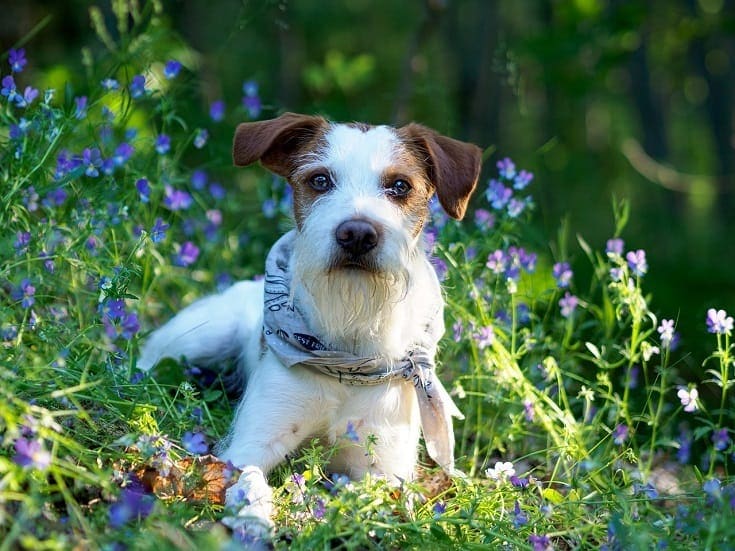Thai Bangkaew: Dog Breed Info, Pictures, Personality & Facts

Updated on
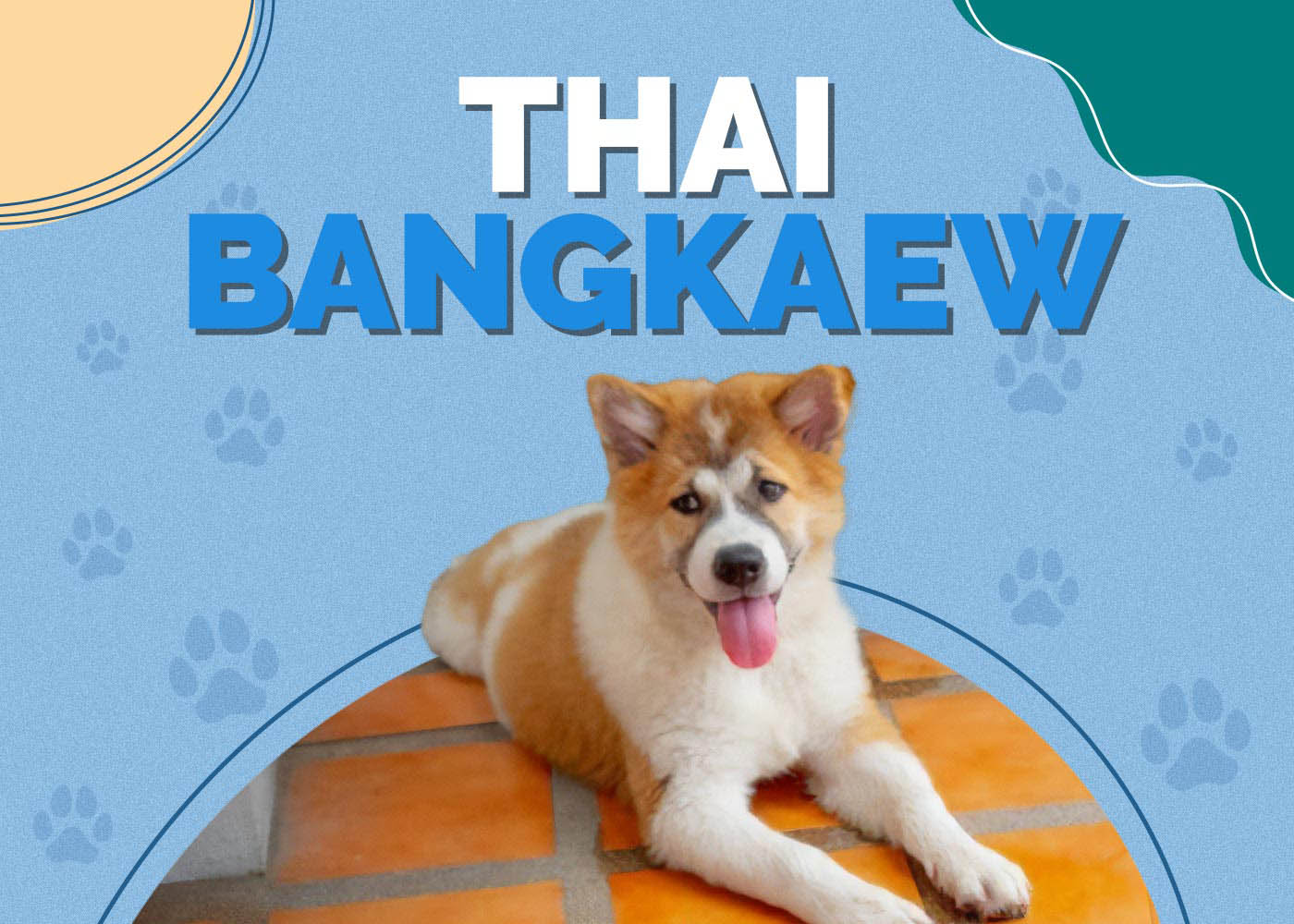
Height:
17-21 inches
Weight:
35-60 pounds
Lifespan:
11-14 years
Colors:
Black, brown, grey, cream, pied, red, white
Suitable for:
Active owners, experienced dog owners, families without young children, owners without other animals
Temperament:
Loving, affectionate, down to earth
The Thai Bangkaew is a highly intelligent, alert, and loyal purebred dog that is believed to have originated in central Thailand.
These dogs are highly energetic and active, so they do best in homes with active owners, and given their stubbornness and willingness to assume the dominant position in your home, they are not recommended for owners who don’t have experience with dog training.
They make excellent companion pets for the right owners, and they will show their love for you in their loyalty and eagerness to protect you and your family. We’ll discuss everything you need to know about this breed so you can be sure if this dog would be a good fit for your home.
Thai Bangkaew Puppies
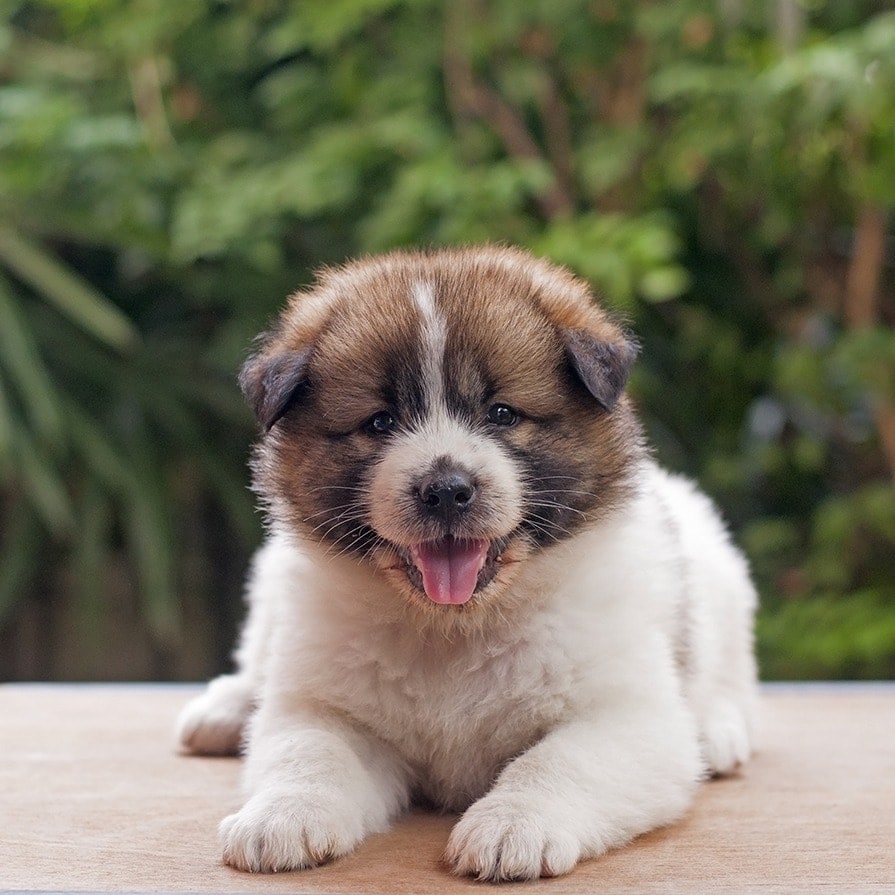
Because this is a lesser-known breed in many parts of the world outside of Thailand, many owners commit to the breed before knowing what to expect from a Thai Bangkaew. It’s very important that you’re prepared for this dog’s personality, as this is often the biggest reason a certain breed doesn’t fit in well with a particular family. These dogs are confident and a bit independent, so if you’re looking for a cuddly and physically attentive breed, you should rethink the Thai Bangkaew. They are loving toward their family members, but they aren’t particularly affectionate.
You’ll also want to be prepared for how difficult this dog can be to train. Thai Bangkaews are dominant and stubborn, so while they may learn new things quickly, they often choose not to listen. They’re not recommended for owners who don’t have experience with obedience training, and you need to be prepared to begin a strict training program from puppyhood. You should also be prepared to establish authority and leadership for yourself beginning at a young age, as your dog will need a strong leader to train them. This needs to be started early on and continued throughout adulthood.
You also need to be aware that these dogs are highly energetic and active. They require about 1.5 hours of exercise every single day even as puppies, and they very quickly turn to destructive behavior if they aren’t able to get their energy out.
Lastly, daily grooming needs to be carried out with this dog given their dense double coat, and even then you’ll still need to be prepared for quite a bit of shedding. Regular brushing and vacuuming should be expected with these dogs.
3 Little-Known Facts About the Thai Bangkaew
1. It Is a Relatively New Breed
Many purebred dogs have been around for centuries and some as long as thousands of years, but the Thai Bangkaew is believed to have originated in Thailand in the 1900s in a village called Bangkaew, hence the breed’s name!
2. They Are Part Jackal
DNA testing of these pooches has confirmed that the Thai Bangkaew was actually a cross between a Thai dog and a Jackal, which is a wild dog indigenous to Africa and Southern Asian countries.
3. They Originated in a Monastery
Although little is known about the exact origin of this dog, it is believed to have originated in the Wat Bangkaew monastery in Bangkaew, Thailand. The abbot at the time, Luang Puh Maak Metharee, reportedly bred a Thai dog with a Jackal and then bred the offspring with herding dogs from a village nearby. The result was the Thai Bangkaew, and the breed was continuously developed into the one that is recognized today.

Temperament & Intelligence of the Thai Bangkaew 🧠
Thai Bangkaews are highly intelligent dogs that tend to be independent. They seem perfectly happy without affection from or physical interaction with their owners.
Despite their tendency to be a bit standoffish, they do enjoy being around their owners and are happiest when they are guarding your home, put to work, or being active with you and your family.
They are very loyal dogs, and they’ll always be up to the task of watching over your family. They do have a playful side, but more often their idea of play will be some type of job to do.
Are These Dogs Good for Families? 🏡
Thai Bangkaews can make excellent family dogs. They were originally bred to be companion dogs, and as long as you aren’t looking for a physically affectionate pooch, these dogs will give you all of the love and attention you’ll want from your pup. They can be wary of strangers, but they’re usually very loving and welcoming toward familiar people.
They often seem confident and willing to be on their own, but they do thrive on human interaction. They’re happiest in homes where there is always someone around to interact with and keep them company, so they’re best suited for big families. They’re also highly active, and the more people you have in your family to help tire them out, the better!
These dogs will always be very friendly toward grown children and older family members, but they can be somewhat aggressive toward young children, especially those who don’t respect your dog’s space. They’re also very active and energetic, and they can easily knock over younger children or toddlers inadvertently while running and playing. For these reasons, Thai Bangkaews are recommended for homes without small kids.
Does This Breed Get Along With Other Pets? 🐶 😽
Thai Bangkaews generally don’t fare well with other dogs in the house. They tend to be territorial and can show aggression toward other dogs, even if introduced at a young age. Early socialization can help limit this kind of reaction to your other dogs, but it’s not guaranteed. The same goes for unfamiliar dogs they meet at dog parks or during outdoor exercise, so you’ll need to be careful around other dogs, even if your Thai Bangkaew is socialized early on.
They also tend to have problems with cats and other small animals as well, as they do have a healthy prey drive. It’s likely that, even with early socialization, your cat, rabbit, or any small pet will be perceived as prey by your Thai Bangkaew. These pups are also recommended for homes without any other pets, just to be safe.
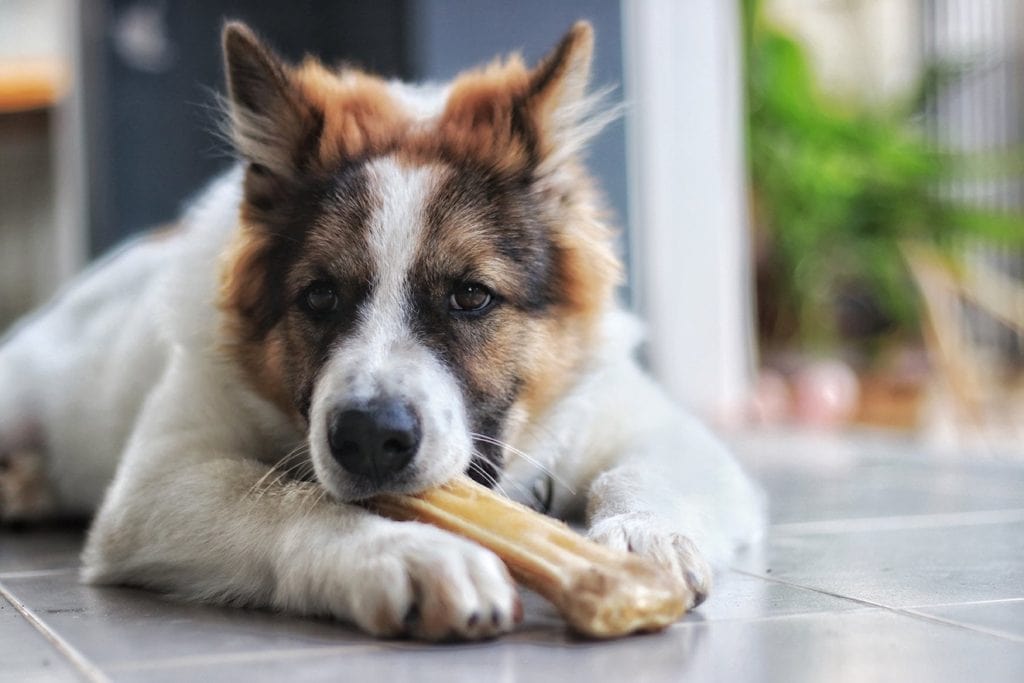
Things to Know When Owning a Thai Bangkaew:
Food & Diet Requirements 🦴
Given the Thai Bangkaew’s high energy level and affinity for nearly constant exercise, you can expect your pooch to have a very healthy appetite! These dogs will need about 2.4 cups of dry food each day, so make sure you’re prepared for the cost of this recommended food volume before you commit to this breed.
A high-protein commercial dog food that includes multiple sources of protein will be best suited for the Thai Bangkaew. A quality dog food without many fillers like corn or wheat will provide your lively pup with the nutrition they need to stay energized and satisfied.
Exercise 🐕
The Thai Bangkaew is a very active and spritely dog, and they require between 1.5 to 2 hours of exercise every single day. This is best accomplished with vigorous exercise like brisk walking, running, agility, and even swimming.
It’s important to note that these dogs will likely be active all day long, whether they’re engaged in exercise or not. They will happily run around your yard and play throughout the day, but this activity level should never replace dedicated exercise. Your Thai Bangkaew will have boundless energy, but make sure they always get their recommended exercise time no matter how active they may seem in your home or yard.
It’s important that these dogs never miss an exercise session because they can become very destructive and exhibit unwanted behavior if they don’t get their energy out in a positive and constructive way on a daily basis. Hit that 1.5-hour mark each day and your slippers and furniture will thank you!
Lastly, given their dense double coat, these dogs can easily overheat if they exercise in warm weather. If you live in a hot climate, make sure your pooch gets regular breaks during exercise and has access to plenty of water.
Training 🦮
Training is perhaps the most difficult part about owning a Thai Bangkaew, as they have a strong tendency to be stubborn and exhibit dominance. They will assume the position of pack leader in your home if you or a family member doesn’t establish it first. Dealing with and properly training a dominant dog can be very challenging, so this breed is not recommended for new owners or those who don’t have extensive experience with training.
These are very intelligent dogs who generally are eager to please their owners, so with the right leadership, the Thai Bangkaew will be a wonderfully obedient and loyal dog. If you establish yourself as the authority figure, they will happily listen and abide by your rules.
Because of their dominant nature, a rigid training schedule will need to be implemented early on and continue through adulthood. Thai Bangkaews do best with an exceptionally firm leader who uses positive reinforcement to establish good behavior.
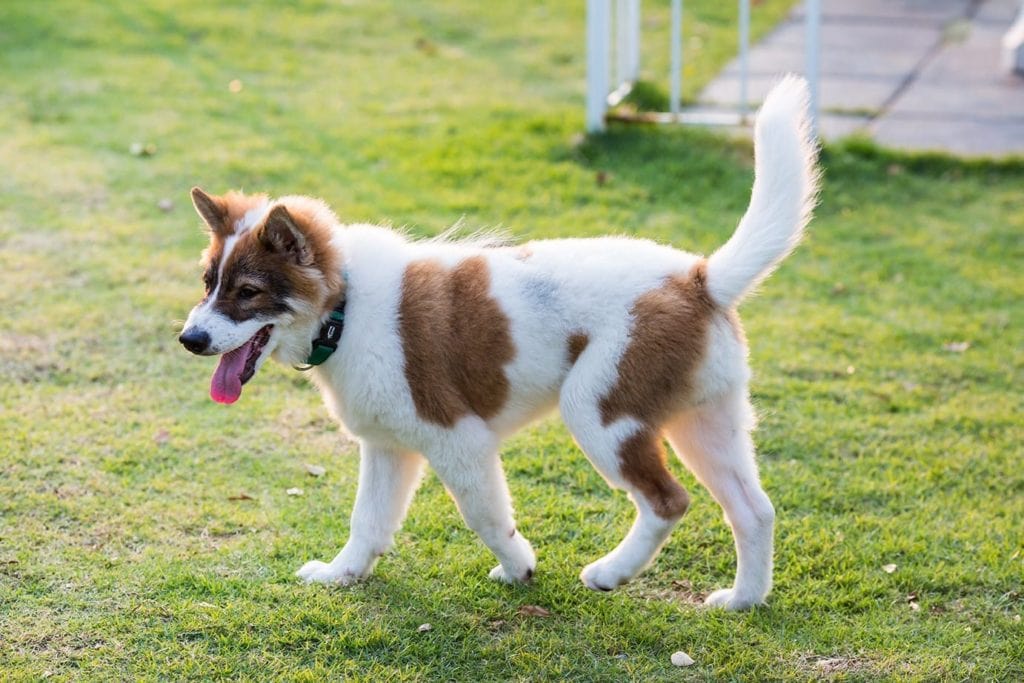
Grooming ✂️
One look at this dog will reveal that grooming will be a bit involved! Their long, dense fur and double coat make for a lot of shedding, so be prepared to vacuum at least once a week. In addition, daily brushing with a de-shedder or pin brush will be helpful to cut down on shedding, reduce matting, and keep your dog’s coat healthy and shiny.
Thankfully, the Thai Bangkaew naturally doesn’t carry that distinct dog odor, so bathing can be done as needed or about once every two months. Even dog-friendly shampoos can deplete natural and healthy skin oils, so don’t bathe more often unless your pooch gets particularly dirty.
It’s recommended that you invest in a good nail clipper for this breed, as highly active dogs need properly trimmed nails to prevent breaking during exercise or play. Rather than taking your pooch to the vet to get their nails trimmed, it’s far more cost-effective and less time consuming to invest in the proper tools and learn to clip their nails yourself.
Lastly, you should plan to wipe their inner ears clean about once a week and brush their teeth with the same frequency, as this will help to reduce the chance of ear infections and tooth and gum issues. This breed does experience inflammation of the inner ear, so always be careful when touching your pup’s ears for cleaning.
Health and Conditions ❤️
Thai Bangkaews are exceptionally healthy dogs, and this is a large reason they tend to live such long lives. They often don’t experience any major, life-threatening issues, and there are only some minor concerns below that are related to their health that you’ll want to be on the lookout for. Despite their general health, yearly checkups with your vet are still recommended to make sure your pooch is as healthy as possible.
- Otitis externa
- Eye issues
- Cryptorchidism
- Hip and elbow dysplasia
Male vs. Female
Male Thai Bangkaews tend to be a bit larger than females; they can stand a few inches taller at the shoulder and weigh up to about 30 pounds more. Males can also be more wary around strangers and may resort to barking more often if they feel that you, your family, or your home are being threatened. They tend to be a bit more alert, protective, and territorial as well.
For the most part, both sexes are about the same in their independence and stubbornness, but males can exhibit more dominance which may lead to more difficulty with training and establishing leadership for yourself.
Final Thoughts
The Thai Bangkaew is a beautiful and highly energetic dog that will fit in nicely with active owners who have the time to dedicate to exercise, grooming, and proper training. This is a dominant breed, so they respond best to firm owners who have extensive experience with obedience training.
If you’re not looking for a very affectionate dog but still want a companion pet, the Thai Bangkaew may be perfect for you. They are extremely loyal and loving toward their families, and they always enjoy human interaction.
They can make great family pets in households where there is always someone around to interact, play, or exercise with, and if you are dedicated to providing your pooch with the proper training and exercise, you’ll find a wonderful friend and companion in the Thai Bangkaew.
- See also: How Much Does a Thai Bangkaew Dog Cost
Featured Image: SritanaN, Shutterstock







